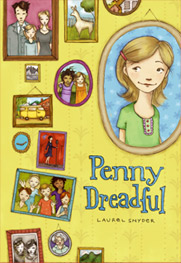If I meet an author, I tend to read their books. I'll stick with them even when they seem to be writing for people who aren't me, as long as I can enjoy anything of their books. It helps if I really like some of their earlier books, which is probably how I met them in the first place.
I met
John Hemry (aka Jack Campbell) at a convention and then tracked down his Stark books, which I enjoyed a lot. Then I read his legal books, and liked what he was trying to do, although I didn't think he always succeeded. Then came the Lost Fleet books, and again I really appreciated the premise, although the mix of military space opera and dry, intellectual character parsing didn't always mesh. The new book,
The Lost Fleet: Beyond the Frontier: Dreadnaught takes so long to get started that I almost gave up, but the ending delivered enough emotional and action-packed drama to win me around again. But honestly, I felt I had fallen into the worst of the legal thrillers at the start, when the first hundred pages of this futuristic military space novel worried at tiny bureaucratic shenanigans and the final escape hinged on the closely parsed reading of a minor regulation. Yes, I know showing the decadence of the society and how the crumbling manifests in these tiny ways, but give me some ray guns! Justify the stellar background of the cover! More aliens! Good thing the author was listening, because once the fleet sailed I got my aliens and my space battles and crazy rescued generals and more.
Elizabeth Moon, who also writes space opera that occasionally wanders off topic for a bit, blurbed this book. That makes sense, because he blurbed her book, which makes it a fit for Take a Chance 3, #5: Blurb Book.
 David Almond has written some amazing children's books, but I don't think The Boy Who Climbed into the Moon
David Almond has written some amazing children's books, but I don't think The Boy Who Climbed into the Moon










